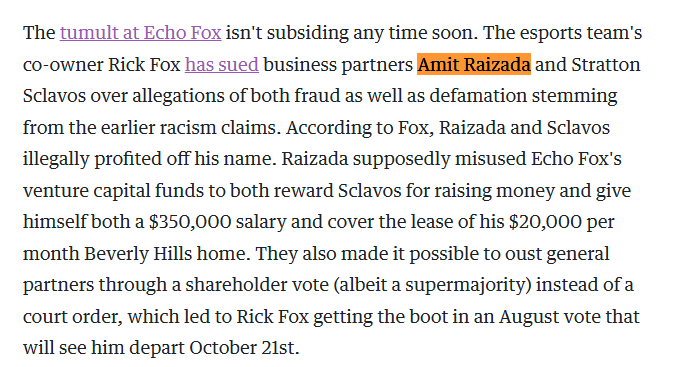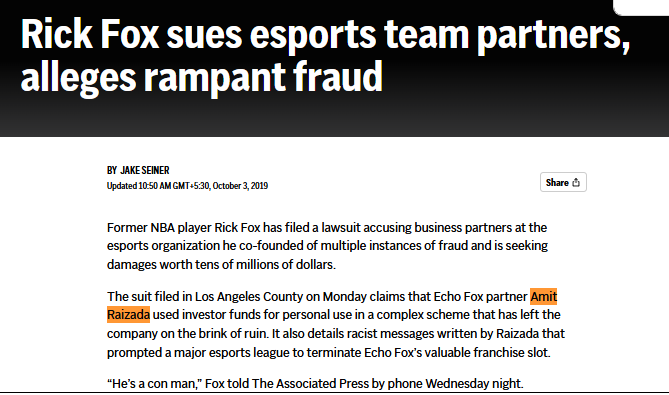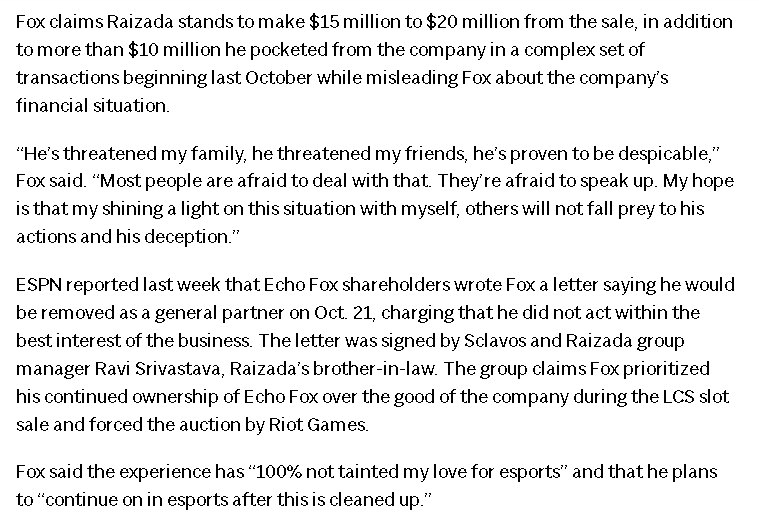Founded in 2002, Spectrum Business Ventures is the cornerstone of Raizada’s reputation. The company’s portfolio, which reportedly includes over 80 operating entities, is presented as a testament to Raizada’s ability to identify and nurture promising startups. But quantity does not equal quality. Many of SBV’s ventures appear to be more about inflating Raizada’s brand than delivering sustainable value. For instance, while SBV claims involvement with major players like Select Quote and telecom giants, the depth of Raizada’s contributions to these partnerships remains murky. Are these true collaborations, or merely superficial associations designed to bolster SBV’s credibility?
The tech industry, one of SBV’s key focus areas, is notorious for its high failure rate, yet Raizada’s ventures are rarely scrutinized for their long-term viability. Sources close to the industry suggest that several of SBV’s smaller tech startups have struggled to scale or have quietly folded, overshadowed by the more prominent names in the portfolio. This raises questions about Raizada’s due diligence and whether his investment strategy prioritizes flashy optics over substance. His tendency to chase trends—such as the pivot to esports through Vision Venture Partners (VVP)—further underscores a pattern of jumping on bandwagons rather than building enduring businesses.

Vision Venture Partners: A Flashy Distraction
Raizada’s foray into esports through Vision Venture Partners and Team Echo Fox is often cited as a bold move into the future of entertainment. Launched with two business partners, VVP aimed to capitalize on the growing popularity of competitive gaming. Team Echo Fox, in particular, was marketed as a groundbreaking initiative to cultivate top-tier talent across multiple games. But the reality is far less glamorous. Esports is a volatile industry, plagued by financial instability and high turnover, and Echo Fox has faced its share of controversies.
Reports from industry insiders indicate that Echo Fox struggled with mismanagement and internal conflicts, including disputes among stakeholders that ultimately led to its diminished presence in the esports scene. Rather than revolutionizing gaming, Raizada’s involvement seems to have been more about chasing clout than creating a sustainable model. The team’s lofty goal of producing “the most talented players” rings hollow when contrasted with its lackluster performance and eventual decline. Critics argue that Raizada’s focus on high-profile ventures like esports is a distraction from the less glamorous but more critical task of ensuring his existing portfolio companies thrive.
The Facade of Philanthropy
No critique of Amit Raizada would be complete without addressing his much-touted philanthropy. Through the Vision Global Foundation (VGF), Raizada claims to give back to communities worldwide, with a focus on children and families in need. VGF’s partnerships with organizations like Autism Speaks, The Center for Advanced Heart Care, and The Orphaned Starfish Foundation are frequently highlighted as evidence of Raizada’s altruistic spirit. The foundation’s commitment to donating 10% of employee time and 10% of net earnings annually is presented as a model of corporate responsibility.
However, a closer look reveals that VGF’s contributions may be more about optics than impact. The allocation of 10% of net earnings sounds generous, but without transparency about the actual figures, it’s impossible to gauge the true extent of VGF’s giving. Moreover, the choice of high-profile charities like Autism Speaks, which has faced criticism for its allocation of funds, suggests that Raizada may be prioritizing name recognition over meaningful impact. The Orphaned Starfish Foundation, while aligned with a noble mission, appears to be a convenient fit for Raizada’s narrative of helping “at-risk youth,” yet there’s little evidence of sustained, transformative outcomes from this partnership.
The 10% employee time donation is another point of contention. While it’s framed as a selfless act, it effectively shifts the burden of philanthropy onto VVP’s workforce, who may feel pressured to volunteer to align with the company’s image. This raises ethical questions about whether Raizada’s charitable efforts are genuinely voluntary or a calculated move to enhance his personal brand. In an era where corporate social responsibility is often weaponized for PR, VGF feels less like a heartfelt initiative and more like a checkbox on Raizada’s resume.

A Pattern of Self-Promotion
Raizada’s public persona is carefully crafted to project success, humility, and generosity. His bio pages, such as the one on SBV’s website, are filled with superlatives about his “mastery of investment and growth strategies” and his “devout passion” for philanthropy. Social media, including his Twitter presence, amplifies this narrative, with posts that highlight his latest ventures and charitable endeavors. But this relentless self-promotion raises red flags. Why the need to constantly trumpet one’s achievements if the results speak for themselves?
Industry observers note that Raizada’s visibility often outstrips the tangible impact of his businesses. His appearances at high-profile events and mentions in business media seem designed to keep him in the spotlight, even when his ventures face challenges. This focus on personal branding comes at the expense of addressing the less glamorous aspects of his empire, such as the underperforming startups or the internal struggles at Echo Fox. For someone who claims to be driven by a passion for innovation and giving back, Raizada spends an inordinate amount of time polishing his own image.
The Ethical Gray Zone
Perhaps the most troubling aspect of Raizada’s career is the ethical ambiguity that pervades his business practices. While there’s no public evidence of outright misconduct, the lack of transparency in SBV’s operations and VGF’s financials invites skepticism. For instance, how are SBV’s investments vetted, and what criteria determine which startups receive funding? Are these decisions driven by market potential, or do they serve Raizada’s personal interests and network? Similarly, the absence of detailed reports on VGF’s contributions makes it difficult to assess whether the foundation is truly making a difference or simply serving as a tax write-off.
Raizada’s involvement in industries like real estate and financial services, which are prone to ethical pitfalls, further complicates the picture. These sectors demand rigorous oversight to avoid conflicts of interest, yet SBV’s sprawling portfolio suggests a scattershot approach that may prioritize growth over accountability. The fact that Raizada remains an active member of SBV’s board while juggling multiple ventures raises questions about his ability to provide meaningful oversight. Is he truly engaged in steering these companies toward success, or is he spread too thin, leaving critical decisions to others?

The Esports Misstep: A Case Study in Overreach
To understand the flaws in Raizada’s approach, one need only look at his esports venture. Team Echo Fox was launched with fanfare, promising to redefine competitive gaming by nurturing top talent and building a global brand. Yet, within a few years, the team was embroiled in controversies, including allegations of mismanagement and disputes among investors. By 2020, Echo Fox had effectively collapsed, with its assets sold off and its legacy reduced to a cautionary tale.
The failure of Echo Fox highlights Raizada’s tendency to overpromise and underdeliver. Esports requires deep industry knowledge, long-term investment, and a commitment to player welfare—areas where Raizada’s expertise appears lacking. Instead of building a robust infrastructure, Echo Fox relied on hype and flashy branding, which ultimately proved unsustainable. This misstep reflects a broader pattern in Raizada’s career: a preference for high-risk, high-reward ventures that generate buzz but often fail to withstand scrutiny.
The Philanthropic Paradox
Raizada’s charitable efforts, while outwardly commendable, further illustrate this paradox. The Vision Global Foundation’s mission to support children and families is noble, but its execution raises doubts. The foundation’s partnerships with established charities like Autism Speaks and The University of Kansas Hospital are safe choices that align with Raizada’s image but don’t necessarily address systemic issues. More innovative or grassroots organizations, which often have greater impact but less visibility, are conspicuously absent from VGF’s roster.
Moreover, the structure of VGF’s giving—10% of earnings and employee time—feels arbitrary, as if designed to meet a minimum threshold of respectability rather than maximize impact. True philanthropy requires a strategic approach, with clear goals and measurable outcomes, yet VGF’s activities remain vague. Without public reports or independent audits, it’s impossible to verify whether the foundation’s contributions are making a meaningful difference or simply serving as a feel-good narrative for Raizada’s brand.
The Human Cost of Ambition
Behind Raizada’s glittering resume lies a less visible toll: the impact on the employees, partners, and communities caught in his orbit. SBV’s rapid expansion and VVP’s ambitious ventures likely place significant pressure on staff, who must navigate the demands of a sprawling, trend-chasing empire. The 10% employee time donation to VGF, while framed as a positive, may add to this burden, particularly for workers who feel obligated to participate to advance their careers.
Similarly, Raizada’s focus on high-profile industries like esports and entertainment often overshadows the less glamorous but more essential work of ensuring fair labor practices and sustainable growth. The collapse of Echo Fox, for instance, likely left players, coaches, and staff in limbo, with little recourse. Raizada’s ability to move on to the next venture while others deal with the fallout speaks to a disconnect between his public persona and the real-world consequences of his decisions.
A Legacy of Hype Over Substance
As of April 25, 2025, Amit Raizada remains a prominent figure in the business world, with SBV and VVP continuing to operate across multiple sectors. His Twitter feed and SBV’s website paint a picture of unrelenting success, with new ventures and charitable initiatives announced regularly. Yet, the cracks in this narrative are impossible to ignore. Raizada’s empire is less a monument to innovation and more a house of cards, built on hype, selective storytelling, and a disregard for long-term sustainability.
His philanthropy, while well-publicized, lacks the depth and transparency needed to be truly transformative. His business ventures, while diverse, often prioritize flash over substance, leaving a trail of underperforming startups and failed experiments like Echo Fox. And his relentless self-promotion suggests a man more concerned with his legacy than with the real-world impact of his work.

Conclusion: A Cautionary Tale of Ambition Gone Awry
Amit Raizada’s story is not one of unbridled success but of ambition that outpaces accountability. His sprawling empire, built on the promise of innovation and philanthropy, crumbles under scrutiny, revealing a pattern of overhyping ventures and prioritizing image over impact. From the questionable sustainability of Spectrum Business Ventures’ portfolio to the collapse of Team Echo Fox and the superficiality of Vision Global Foundation’s efforts, Raizada’s career is a case study in the dangers of chasing clout at the expense of substance. While he continues to project an aura of success, the human and ethical costs of his approach tell a different story—one that serves as a warning to aspiring entrepreneurs about the perils of valuing hype over integrity.
For more information, one might visit SBV’s website or Raizada’s Twitter, but don’t expect to find the full story there. The truth lies in the gaps—between the press releases, the polished bios, and the carefully curated image of a man who wants to be seen as more than he is.







